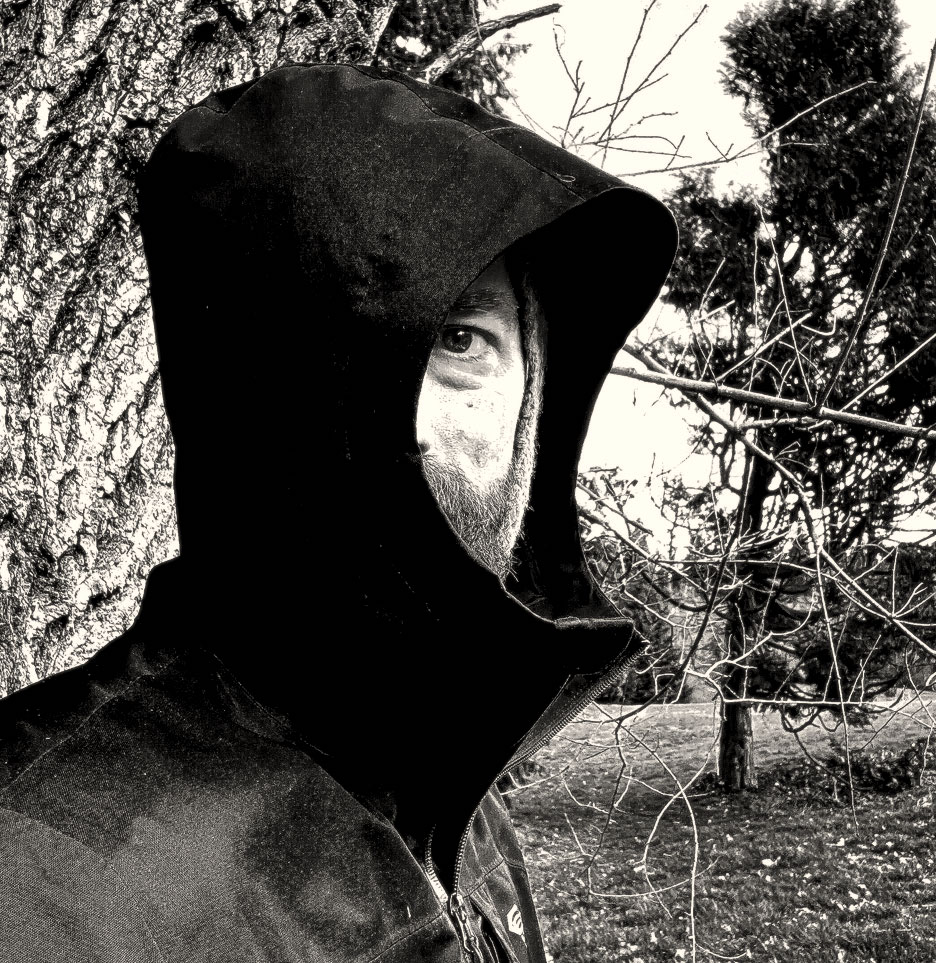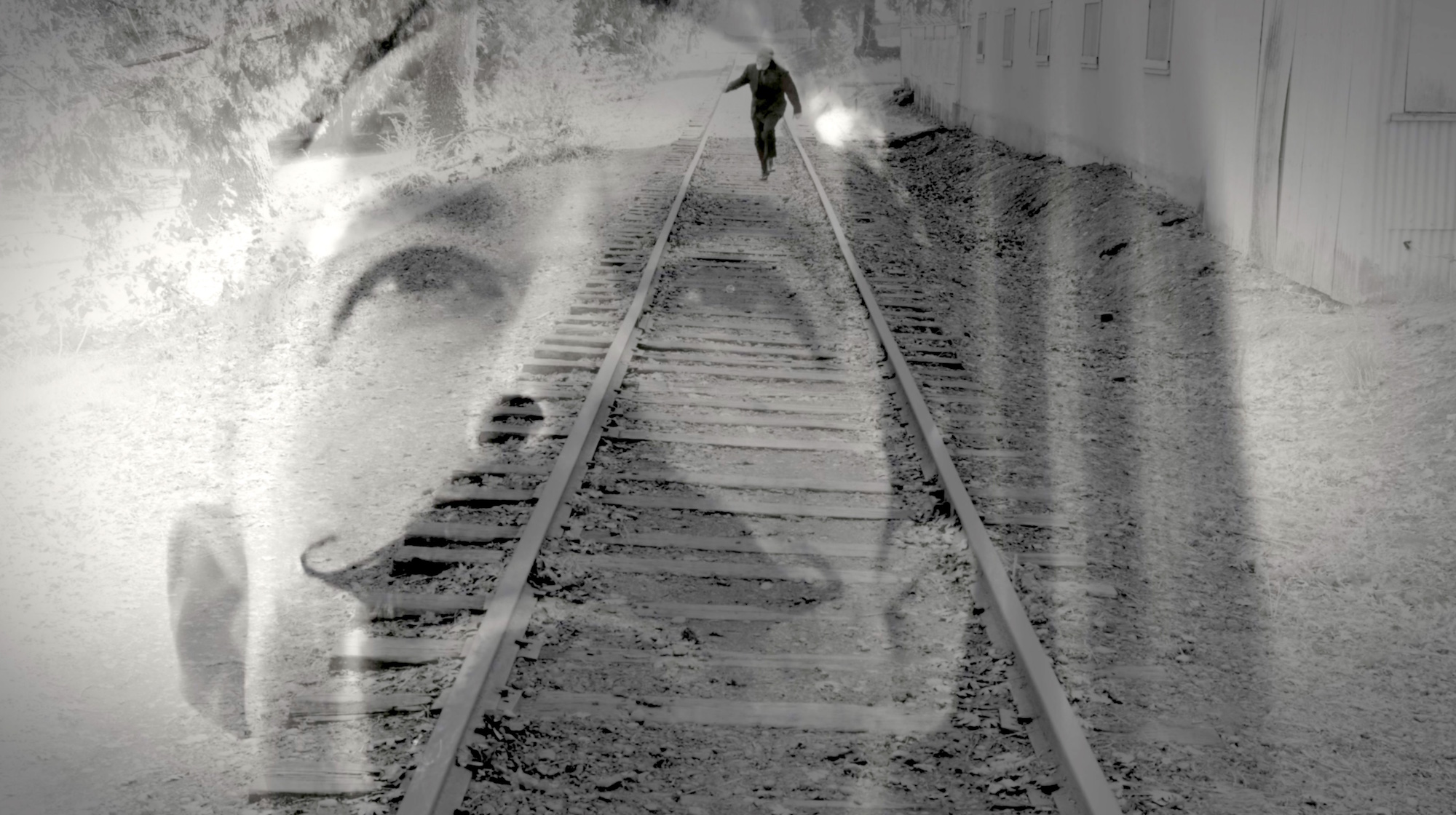As with many of my films, TRACER started out differently than what it became in the end. Initially, I was exploring a “hunter vs. hunted” theme in a two-character crime story about a private detective tracking down an elusive anarchist plotting against the government (a reaction to Donald Trump's Jan. 6th 2021 insurrection attempt). As this seed idea germanated it sprouted new and unexpected blossoms, something more innate to my actual life -- though I didn't know exactly what or how yet. I let go of the idea and the ensuing unknown ignited the Muses dialogue, a creative state I follow in my life and work (referenced in the final paragraph of this vision statement). -- A.A.
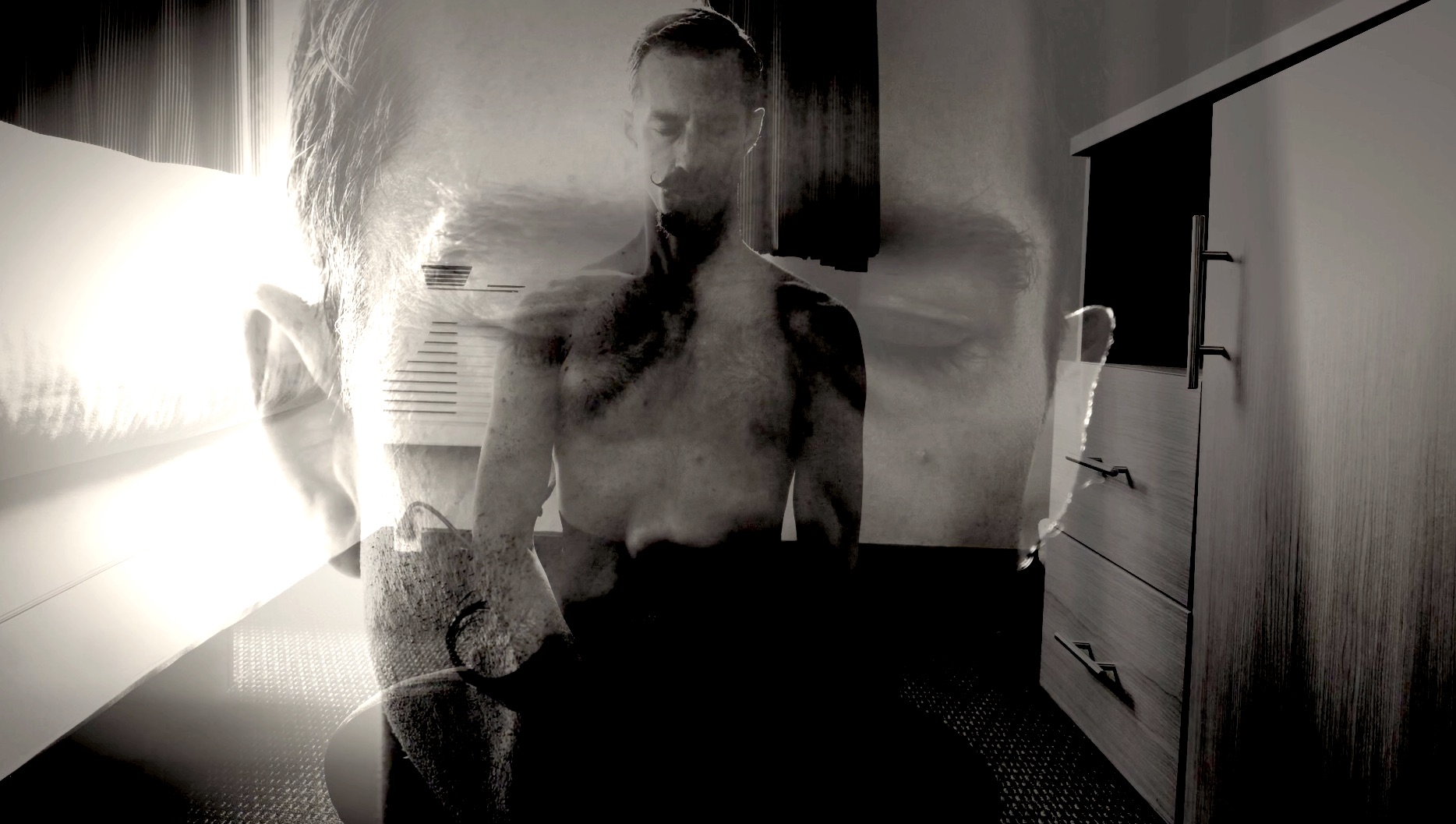
Douglas Allen as the Tracer conducting a remote viewing trance
Remote viewing. Like many others, I have been concerned by the ubiquitous surveillance culture across the USA and beyond and thought it might be interesting to trace this phenomena back to mid-20th century Russian ESP experiments with remote viewing to psychically spy on others from afar. The USA soon began conducting their own PSI-experiments which included dosing unsuspecting soldiers with LSD to determine its military benefits. This turned into an epic fail after the acid-dosed soldiers laid down their weapons and rolled around on the ground laughing their asses off. These ideas inspired the idea of C-9, a Russian designer drug promising to amplify perception, empathy, and increase the capacity for remote viewing. My former detective character now became a C-9 dosing “tracer” (Douglas Allen), a remote viewing hitman paid by the Russian mafia to track and terminate an American businessman who absconded with mafia money. The hunter/hunted theme returns but now transformed.
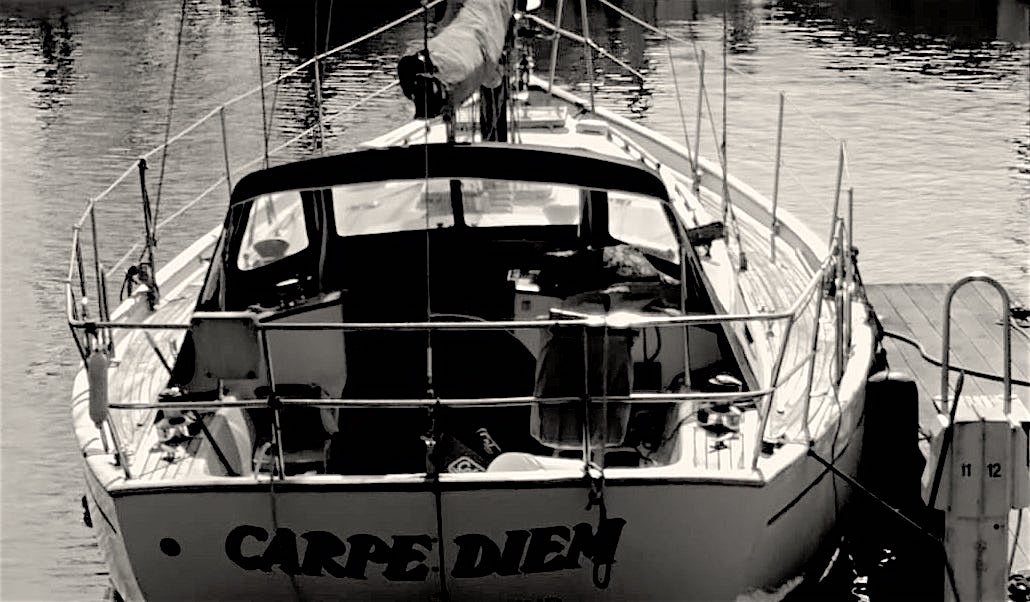
The "Carpe Diem" docked in Cathlamet on the Columbia river
Escape. For much of my mispent youth, I tried to escape reality. As I grew older, I started experimenting with this idea of escaping into reality, rather than attempting to escape from reality (impossible!). Escaping into reality has meant adjusting my will from being the boss to sometimes letting the situation be the boss. This has required a deeper receptivity to the existing conditions before me and within me towards new experiences of surrendering to What Is and as kind of love affair with fate, of romancing existence itself; amor fati. The character of Leo (Rick Wilding) has been trying to escape reality for years until that reality finally catches up with him with some big decisions to make.
When writing the screenplay, I had Leo sailing his yacht up and down the USA west coast occasionally docking on the Columbia river near Portland to visit his wife, Corinna. What?! A yacht? Where do I find a yacht? The Muses threw me a curve ball here. As it turned out Rick Wilding is also a sailor whose good friend Bud owns a 40 ft. yacht, the "Carpe Diem". Bud generously let us film there for one long day's shoot of twelve hours straight - to get 14 scenes in the can! Impossible! But we did it. Fortunately, it was just me on camera and audio with one or two actors, and mostly natural light. Word got out to local media and the morning after our all day grueling shoot, Diana Zimmerman arrived from the Wahkiakum County Eagle to interview me and Rick about filming on the yacht.
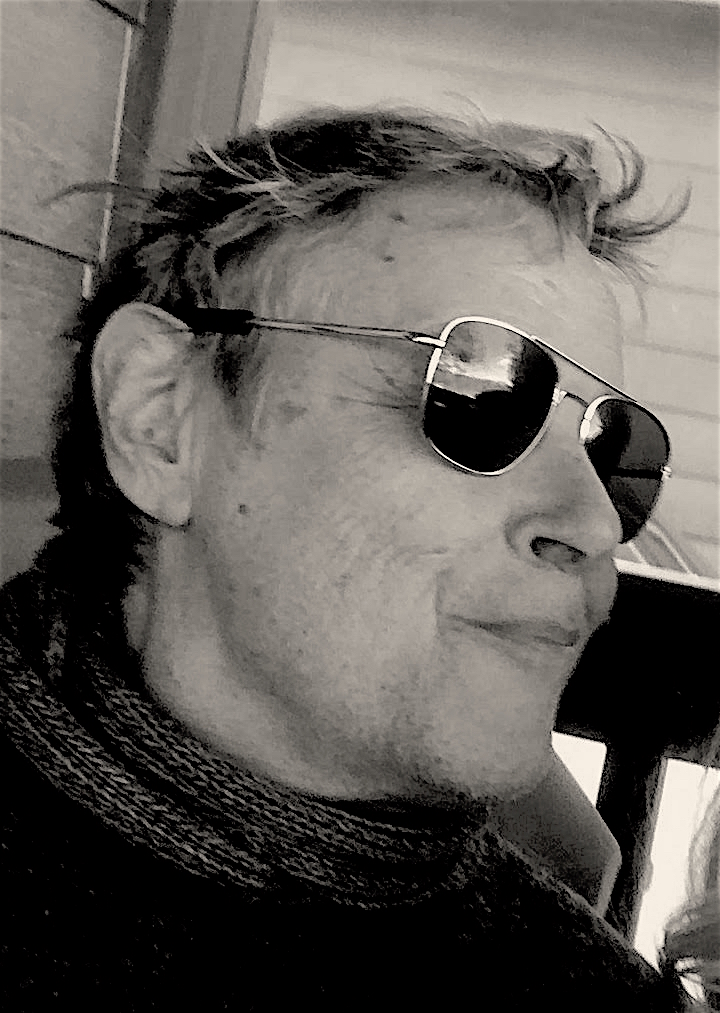 ...
...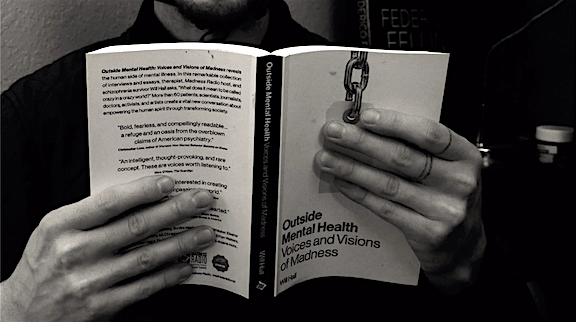
The morning after the final day's shoot ~ "Outside Mental Health" (book)
Crazy or psychic? Another theme I've been haunted by for decades. Polly (Kasia Caravello) appears in this story as a highly sensitive woman who channels her great, great grandmother - a Polish seer murdered after being labelled a witch - in her monetized "Oracle vlog". Polly enters these intense trances that rattle her nerves which she attempts to calm in various ways. Will Hall's "Outside Mental Health" is a comprehensive book of stories and interviews with people who were misdiagnosed with mental illness that also inspired this theme. In addition, I drew from early personal experiences with what clinical psychiatrists might label 'dissociative personality disorder' or maybe even schitzophrenia: I started seeing visions and hearing voices. A friend of mine suggested I talk with this guy, Michael Symonds, about my experience. We met and I told him about my visions and voices. After a few studied moments, he said, "You're not crazy. You're psychic." He told me that my psychic abilities were out of control and that he could help me manage them and, if I wanted, teach me to see human auras as a profession. I trained with Michael and after ten years of aura reading, I quit the psychic business. During this decade I also conducted a series of remote viewing experiments that were not entirely unsuccessful.
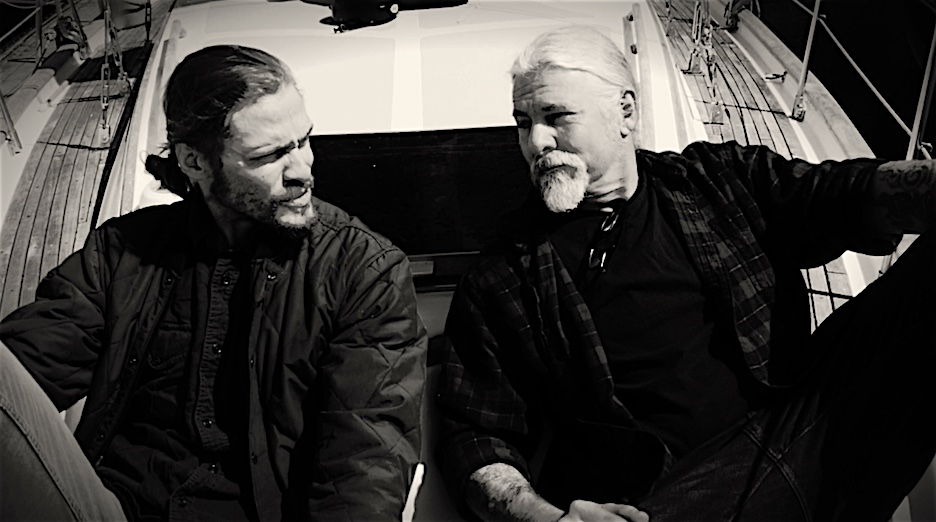
Ben Ervin as "Erik" and and Rick Wilding as "Leo"
Homecoming. During his world travels over seven years, the character of Erik (Benjamin Ervin) returns home to Portland Oregon with high hopes of a family reunion. This character came to me through a series of memories -- arriving in Toronto as a Finnish immigrant at the age of three, migrating further westward seven years later to Los Angeles and being invited by my grandmother, at the age of 28, to visit my home country of Finland. She had arranged a series of meetings with my distant relatives all across the country. I was enthralled by the dream of returning to the land of my ancestors. But fate intervened when I arrived at Helsinki airport and unexpectedly taken into custody by the Finnish militia. WTF. My longing to reunite with long lost family turned to horror as my captors informed me that I was to enter military service or go to jail; as a Finnish man under the age of 30 it was my national duty. Traumatized, I escaped back to California to convalesce and recover. Memories of these frustrated family needs reflects Erik's longing for a family he knew and loved as a boy but that no longer existed as a man.

"Soror Mystica" ParaTheatrical ReSearch, December 2017
The Muses dialogue. Since 2010 all my films have balanced heavily-veiled autobiographical influences with the ineffable signals and whispers of, what I have come to call, the Muses dialogue. These are not my muses (they belong to no one!) but the Muses, autonomous archetypes I encountered over a ten-year somatic exploration (2009-2019) of this phenomena through group paratheatrical research. These nonverbal, internal Muse dialogues tend to arrive as images, sounds, ineffable impressions that find expression through the multi-tiered medium of cinema. Speaking with other artists, I hear similar stories about what calls them or guides their process. We are the mad ones, the ones who see visions, hear voices. My kind of people, my kind of madness.
